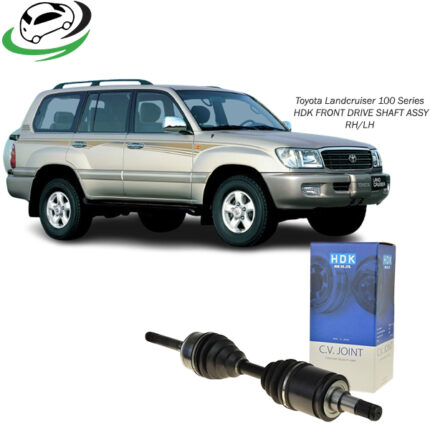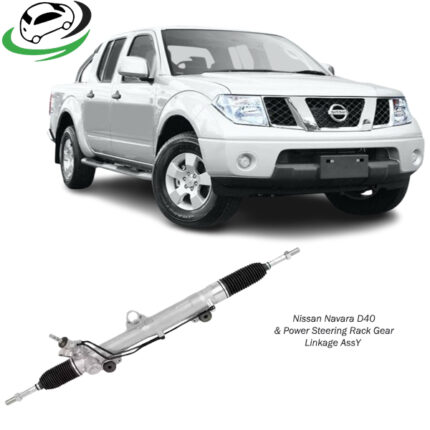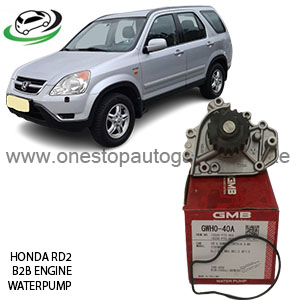-11%
Water Pump Assy Honda CRV RD1/RD2 IN KENYA
In the intricate symphony of a car’s engine, the water pump is the unsung hero, quietly performing its vital role in keeping the entire system cool and operational. While often overlooked, the significance of the water pump cannot be overstated. It plays a crucial role in maintaining the engine’s temperature within optimal ranges, ensuring efficiency, longevity, and reliability. This essay will delve into the importance of the car water pump, exploring its function, significance, and consequences of failure.
Function of Car Water Pump:
The primary function of the water pump in a car is to circulate coolant throughout the engine, dissipating heat generated by combustion. Modern internal combustion engines operate at high temperatures, necessitating effective cooling mechanisms to prevent overheating and subsequent damage. The water pump achieves this by continuously circulating coolant from the radiator through the engine and back, facilitating heat transfer and maintaining the engine’s temperature within a safe range.
Significance of Car Water Pump:
- Engine Cooling: The water pump is integral to the engine cooling system. By circulating coolant, it absorbs heat generated during combustion and carries it away from critical components. This prevents overheating, which can lead to engine seizure, warping of metal parts, and ultimately, catastrophic engine failure.
- Temperature Regulation: Consistent engine temperature is crucial for optimal performance and fuel efficiency. The water pump helps regulate the engine’s temperature, ensuring it operates within the manufacturer’s specified range. This promotes efficient combustion and minimizes wear and tear on engine components.
- Prevents Corrosion: Coolant not only dissipates heat but also prevents corrosion and rust within the engine. The water pump ensures the continuous flow of coolant, which inhibits the formation of corrosive deposits and maintains the integrity of engine components.
- Extends Engine Lifespan: By facilitating proper cooling and temperature regulation, the water pump contributes to the longevity of the engine. Engines that operate within optimal temperature ranges experience less stress and wear, resulting in a longer lifespan and reduced maintenance costs.
Consequences of Water Pump Failure:
- Overheating: The most immediate consequence of water pump failure is engine overheating. Without proper coolant circulation, heat builds up rapidly within the engine, leading to increased friction, expansion of metal components, and potential damage to critical parts.
- Engine Damage: Prolonged overheating can cause severe damage to the engine, including warped cylinder heads, blown gaskets, and cracked engine blocks. These issues often necessitate extensive and costly repairs or even engine replacement.
- Reduced Performance: A malfunctioning water pump can impair engine performance, leading to decreased power output, rough idling, and diminished fuel efficiency. In severe cases, the engine may fail to start altogether, leaving the vehicle inoperable.
- Safety Hazards: Engine overheating poses safety hazards on the road, as it can result in sudden breakdowns or loss of power while driving. This jeopardizes the driver and passengers’ safety, especially in high-speed or heavy traffic situations.
Conclusion:
In conclusion, the car water pump is a fundamental component of the engine cooling system, playing a critical role in maintaining optimal operating conditions. Its function goes beyond mere coolant circulation; it is the guardian of engine health, reliability, and longevity. Understanding the importance of the water pump underscores the significance of regular maintenance and prompt repairs to ensure the smooth and efficient operation of vehicles. Failure to address water pump issues can have dire consequences, highlighting its indispensable role in the intricate machinery of the modern automobile.



